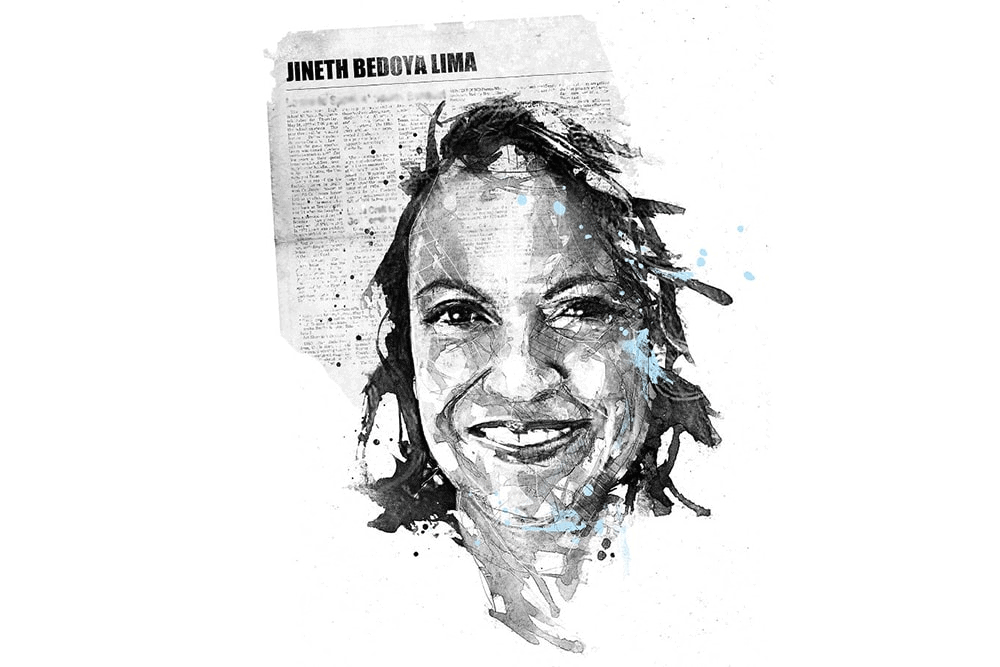Catalina Botero Marino is a Colombian lawyer known for her tenacious demeanour during her tenure as IACHR Special Rapporteur for Free Expression.
Reflecting on her achievements during her time at the IACHR, Botero said: It's the satisfaction of having defended people under threat or who were going to be murdered, or having helped to keep people out of prison - people who could have been sentenced for exercising their right to freedom of expression.
Catalina Botero Marino is a Colombian lawyer known on the international human rights stage for her two terms served as the Special Rapporteur for Free Expression for the Inter-American Commission on Human Rights (IACHR) from 2008 to 2014. After receiving her law degree in 1988 from the University of the Andes, she studied human rights at the University Human Rights Institute at the Universidad Complutense in Madrid.
Before becoming the Special Rapporteur, Botero worked for the Constitutional Court of Colombia for eight years and was also a special advisor to the Inspector General of the Nation of Colombia and the General Director of the Office of the People’s Ombudsman of Colombia. This combination of human rights and legal experience gave her a solid footing for her role with the IACHR.
During her tenure as Special Rapporteur Botero did not shy away from calling out states that infringed upon the right to free expression. The Inter American Press Association (IAPA) described her performance in the role as “tenacious”, a fitting description of the way she was critical of rights abuses in many of the region’s nations. In response to her work, Ecuador’s President Rafael Correa attempted to discredit her, saying she was biased in favour of the work of local NGO Fundamedios, another of Correa’s critics.
In 2011 her office found itself on the receiving end of an attack from the government of Ecuador, which submitted a proposal to the Organization of American States (OAS) to review and limit the scope of the Special Rapporteur’s work. Backed by a group of countries including Venezuela, Bolivia and Nicaragua, three recommendations from Ecuador were included in a report by an OAS working group tasked with strengthening the office. The recommendations would have prevented the rapporteur from publishing its own report on freedom of expression in the Americas and stopped the office from seeking independent financial support. In a decision hailed as a victory for free expression, in early 2013 the OAS decided to exclude Ecuador’s recommendations from their process to strengthen the office’s role.
Since leaving the office of Special Rapporteur, Botero continues to be involved in free expression issues and was a professor with the law school at the Universidad Externado in Colombia. She is also working on a comprehensive database of freedom of expression in the region and acts as a consultant for international bodies such as UNESCO. In September 2016, Botero was named dean of the University of the Andes’ Faculty of Law.
In the wake of the Charlie Hebdo shootings in Paris, Botero wrote an article for Semana in which she stressed that the response to the massacre had to be a continued fight for free expression, rather than censorship. In March 2015, Botero was the recipient of the IAPA Chapultepec Grand Prize, awarded to individuals or organisations that defend the Declaration of Chapultepec‘s 10 principles on freedom of expression and of the press. In the IAPA press release about the decision to give the award to Botero, IAPA President Gustavo Mohme said about her tenure, that “all the people of the Americas have benefitted from her unselfishness while upholding values so fundamental for democracy.”
Botero continues to participate in conferences and forums throughout the region, actively promoting freedom of expression in its broadest sense. In August 2017, during a conference in Panama focusing on journalism and “fake news”, Botero stated that, “The more media outlets there are the better it is for a country’s press freedom, and freedom of expression overall”.
She is currently part of the academic committee of the Centro de Estudios en Libertad de Expresión y Acceso a la Información at the University of Palermo, Argentina, a member of the advisory board of IFEX member Derechos Digitales Chile, and a member of the Friends of the Inter-American Democratic Charter of the Carter Center and expert member of the Inter-American Dialogue, as well as member of the International Bar Association’s Human Rights Institute Council, commissioner at the International Commission of Jurists and arbitrator of the Bogotá’s Chamber of Commerce. She is also an expert affiliated to Columbia Global Freedom of Expression. On 6 May 2020, Facebook (now Meta) appointed her to its first independent Oversight Board.
Illustration by Florian Nicolle

